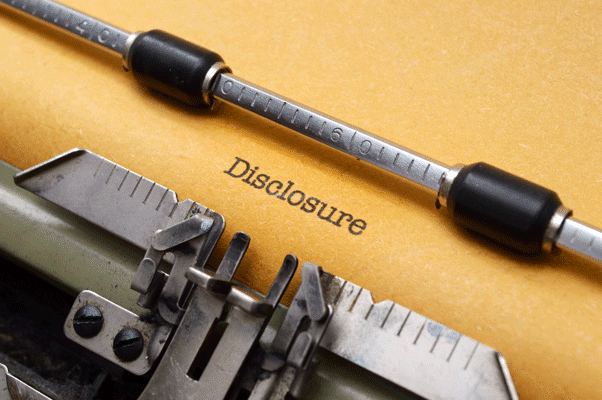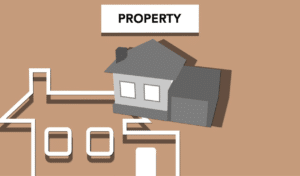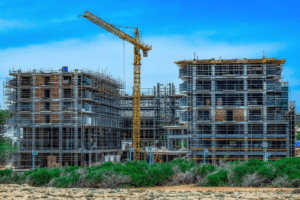Selling property may seem like an easy venture, but when you get down to it, you’ll learn more about the intricacies involved. It’s not just buyers who need to be careful when selling luxury real estate in Las Vegas, but also their agents.
We got together with our legal team for this article, so here’s a shout out to them.
The meat and potatoes of this article is that when looking to sell property in Las Vegas, it is important that you disclose any and all material facts essential to providing a clear picture of the condition and history of the house.
At the end of the day, it is the responsibility of sellers to provide buyers and their agents with a clear picture. Failure to do the same will lead to serious ramifications, a majority of which are directed toward the owner.
For those of you who have seen Breaking Bad (2008-2013), remember the episode where Saul Goodman buys a house that used to have a meth lab in the basement and the sellers tried to conceal the fact? Well, a similar situation applies to Las Vegas real estate.
Las Vegas, Nevada Home Disclosure Requirements
When it comes to house disclosure laws in the US, the state of Nevada has some of toughest requirements – especially when homeowners are selling, i.e., when residential real estate is concerned. NRS 116.4103 suggests that the HOA must document every detail about the state of the property.
Having said that, at the end of the day, it’s the homeowner’s responsibility to disclose essential information, considering the fact that only you know what really happened. Keep in mind that in a lawsuit, HOAs won’t be as liable as you, personally, would be.
The Information Statement Disclosing Homeowners’ Rights and Obligations (HDRO statement) form must include every bit of information, else buyers have the option of backing out of a deal at any time.
It is also important to disclose if there has ever been a fire in the house. The NFPA (National Fire Protection Association) suggests that in the US, the fire department responds to a fire alert every 24 seconds.
Water and fire damage is considered a material fact – and the state dictates that it is important to disclose the same to any potential buyers.
NRS § 113.130 (Sale of real property) suggests that sellers must make truthful disclosures about the real condition of the property. This includes, but isn’t limited to the state of:
- Electrical systems and components
- HVAC equipment and insulation (heating and cooling)
- Plumbing and sewage system condition
- Anything else that may affect the usability or value of the property
A common question we get is “if there was a robbery or death in the house, do I have to disclose it when selling?” There is no law suggesting that you have to do that, since it doesn’t affect the usability or value of the house. Good faith, however, suggests that you do.
What If I Miss Something?
It is important to note that NRS § 113.140 suggests that homeowners will not be held liable for nondisclosure of a fact they weren’t aware of. However, the burden of proof lies on the buyer to prove that they were aware of the same, should they choose to litigate. This is one of the biggest hurdles for plaintiffs in court.
To make things easier for sellers, the basic topics to cover in disclosures are listed by the Nevada Real Estate Division. This Residential Disclosure Guide is in a printable format, so you can either do the same yourself or ask your agent to do it for you.
As a seller, NRS § 113.150(5) suggests that it is well within your rights to rely on any information without due diligence given to you by government officials or experts. This includes engineers, contractors/builders, surveyors, and inspectors.
This clause limits the liability on sellers in case there is an undisclosed fact that you weren’t aware of or were given the thumbs up for by a professional. This clause also encourages sellers to consult experts about things they aren’t too sure of.
You don’t have to disclose any repair work done in your home when selling either, provided the damage has been repaired properly. This includes fire and water damage, such that it was repaired, and items replaced before selling.
Failure to Disclose Defects on Purpose
If a seller doesn’t disclose any material facts knowingly, or worse, makes significant effort to conceal a defect, the purchaser will have several options to consider. However, these will only be applicable if the purchaser wasn’t aware of the facts until after the purchase has been completed. If they knew but chose not to point the defects out to the seller, these rights will be forfeited.
The state of Nevada and Las Vegas therein allow buyers the following rights in case of failure to comply with home disclosure requirements.
- If the purchase is in its final stage, buyers may choose to cancel the purchase without having to worry about any cancellation fee or fines
- If the purchase has been completed, they may be entitled to receive a full return of their deposit
- If they so choose, buyers will be entitled to recover any legal fees involved in the process, along with damages
- If they don’t choose to cancel the purchase and spend money on repairs, they may be entitled to the repair costs incurred, along with legal fees, if any
It is important that buyers do a full sweep of the house and invite experts, if possible. This is because, as mentioned above, the biggest problem faced by buyers is proving that sellers knew about the issue.
If buyers find any material issue that wasn’t disclosed before finalization, it is important that it is brought to light and discussed – either individually or legally.
Buying and selling real estate in Las Vegas may seem to be a straightforward venture, but even the slightest mistake here can prove to be very costly. To make sure you do everything by the book and in an effective fashion, we recommend you get in touch with The Vegas Group, whether you’re an agent, seller, or a buyer.
If you want to familiarize yourself with the SRPD form it can be found here. SRPD
Disclaimer: There are numerous factors to consider in every investment, including real estate. The information provided above is just a matter of opinion and can change with time. It shouldn’t be construed as legal or tax advice; neither does the report constitute a financial promotion or investment advice. It is general information and before making any such decision, you should seek out licensed professionals and see all ends clearly.




